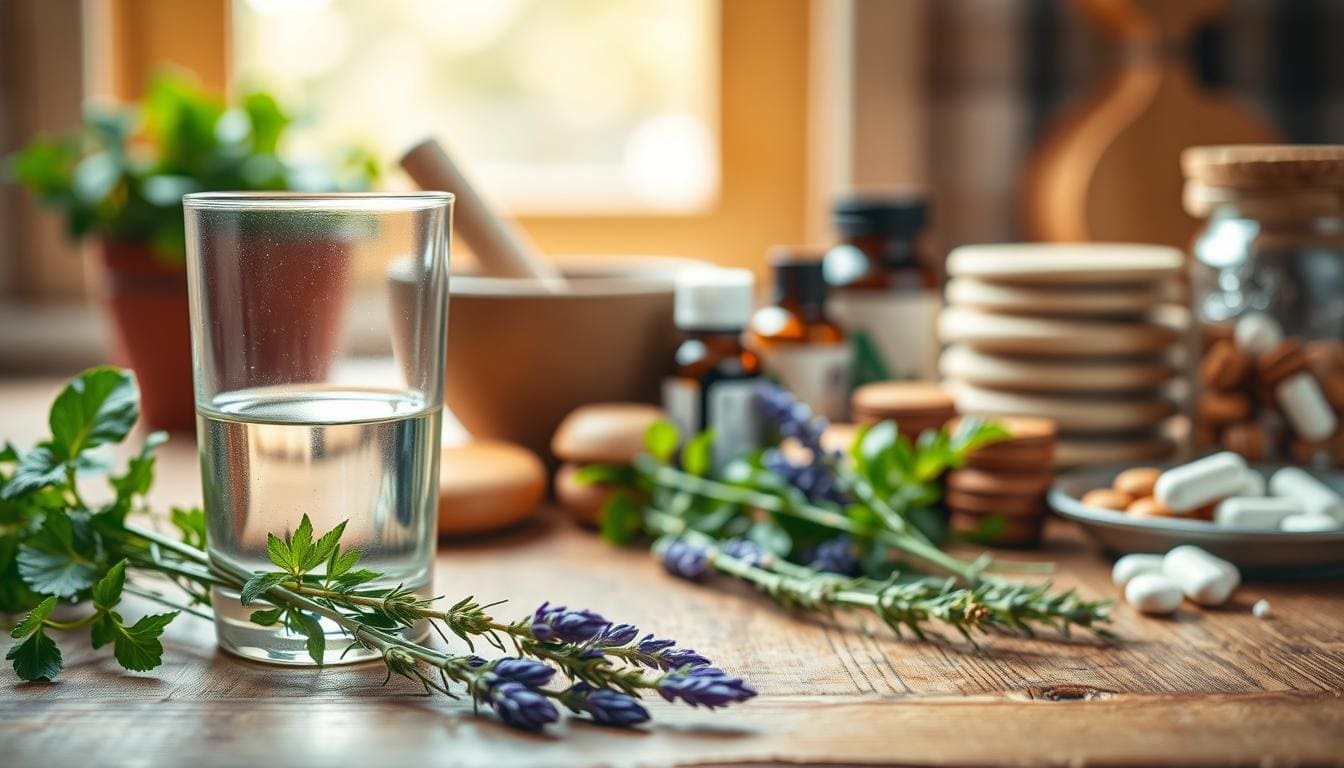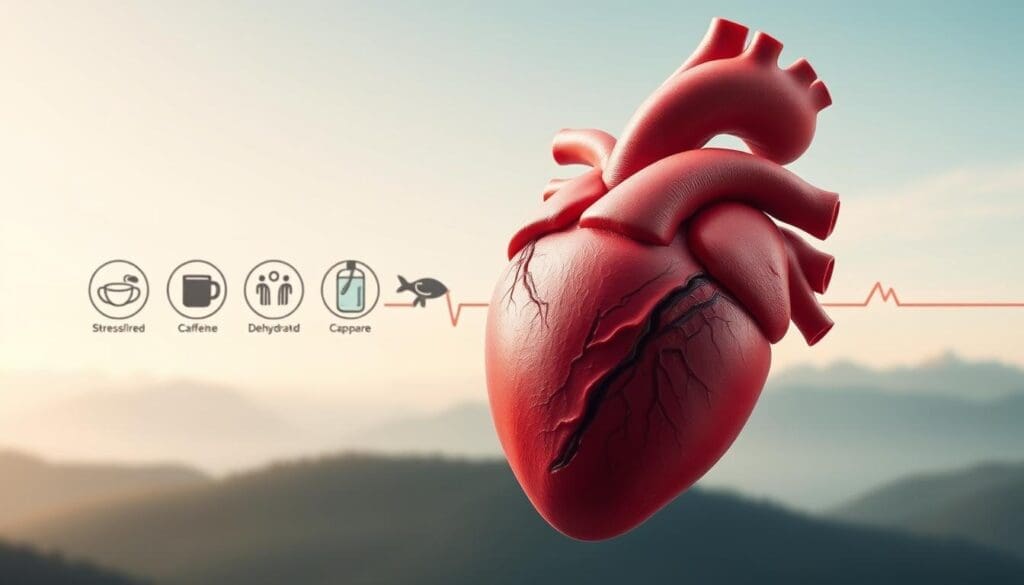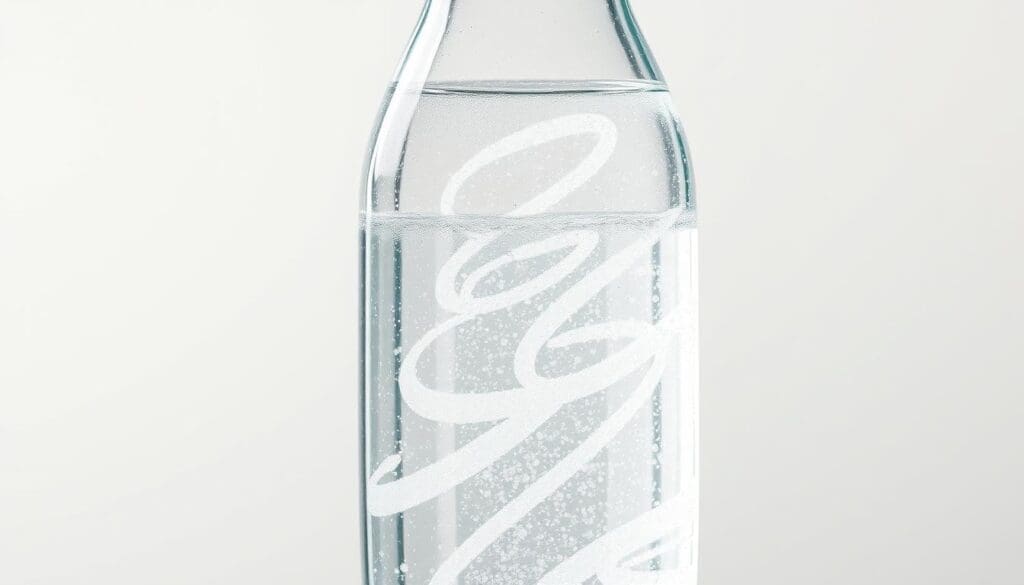
Heart palpitations can be scary, but there are ways to handle them. We focus on safe and reliable ways to care for your heart health.
At Liv Hospital, we aim to give top-notch healthcare with full support. We look into alternative solutions for heart palpitations, guided by medical knowledge.
Find the right remedies and see a big change. We’ve found 10 evidence-based natural remedies to quickly ease heart palpitations.
Key Takeaways
- Manage heart palpitations with lifestyle changes and alternative solutions.
- Explore evidence-based natural remedies for fast relief.
- Liv Hospital provides complete healthcare support for international patients.
- Our approach combines medical expertise with patient-centered care.
- Discover 10 effective natural remedies to alleviate heart palpitations.
Understanding Heart Palpitations: Causes and Symptoms

Heart palpitations can be unsettling, but knowing their causes and symptoms is key. We’ll look at common triggers, types of palpitations, and when to see a doctor.
Common Triggers of Heart Palpitations
Many things can cause heart palpitations. Stress and anxiety are big ones, as they make your heart beat faster. Caffeine and nicotine also play a part by speeding up your heart. Not drinking enough water can lead to palpitations too, as it messes with your heart’s rhythm.
Other causes include some medicines, hormonal changes, and health issues like hyperthyroidism. Knowing these can help you avoid them.
Recognizing Different Types of Palpitations
Palpitations can feel different to everyone. Some might feel their heart racing, while others might feel it skipping or fluttering beats. Knowing how your palpitations feel can help figure out why they’re happening.
For example, if palpitations happen after drinking caffeine or alcohol, it might be because of the stimulants. But if they happen when you’re not stressed or during stress, it could mean there’s something more serious going on.
When to Seek Medical Attention
Even though most palpitations are not serious, some times you should see a doctor. If you have chest pain, dizziness, or shortness of breath with palpitations, get help right away. Also, if palpitations keep happening or happen a lot, you should talk to a doctor to check for any health issues.
“It’s essential to understand that while heart palpitations can be alarming, they are often not a cause for concern. But knowing when to seek medical help is key for your heart health.”
By knowing the causes, recognizing symptoms, and knowing when to get help, you can manage heart palpitations well. This helps keep your heart healthy.
Stay Hydrated: Does Drinking Water Help Heart Palpitations?

Drinking enough water is often overlooked as a remedy for heart palpitations. Yet, staying hydrated is a simple yet effective way to manage heart palpitations. Dehydration can cause an imbalance in electrolytes, leading to heart palpitations.
The Connection Between Dehydration and Palpitations
Dehydration happens when we lose more fluids than we take in. This leads to not enough water and other fluids for our body’s normal functions. It causes the heart to work harder, leading to heart palpitations.
Dehydration and Electrolyte Imbalance: Dehydration disrupts the body’s electrolyte balance. Electrolytes like potassium, sodium, and magnesium help regulate heart rhythm. An imbalance can cause irregular heartbeats or palpitations.
How Much Water Should You Drink Daily
The amount of water we should drink daily varies. It depends on age, sex, weight, and activity level. Generally, we should drink at least eight 8-ounce glasses of water per day.
| Activity Level | Recommended Daily Water Intake |
|---|---|
| Sedentary | 8 cups (64 oz) |
| Moderately Active | 10 cups (80 oz) |
| Very Active | 12 cups (96 oz) |
Electrolyte-Enhanced Water Options
Drinking plain water is good, but electrolyte-enhanced water can also help. It has added electrolytes like sodium, potassium, and calcium. These help replace what’s lost through sweat.
Benefits of Electrolyte-Enhanced Water: It’s great for those who do a lot of physical activity or live in hot places. It helps prevent dehydration and keeps electrolyte levels right.
Balance Your Electrolytes with Potassium-Rich Foods
Eating foods high in potassium can help keep your heart rhythm steady. Potassium is key for heart function and rhythm. Having the right balance of electrolytes, like potassium, helps manage heart palpitations.
Top Potassium-Rich Foods to Include in Your Diet
Adding potassium-rich foods to your diet is tasty and simple. Here are some top picks:
- Leafy Greens: Spinach, kale, and collard greens are packed with potassium and other nutrients.
- Bananas: A classic choice, bananas are easy to add to your daily meals.
- Avocados: Avocados are full of healthy fats and potassium, making them a great meal addition.
- Nuts and Seeds: Almonds, pumpkin seeds, and sunflower seeds are all high in potassium.
- Fatty Fish: Fish like salmon are also good sources of potassium.
Magnesium and Calcium: Other Essential Electrolytes
Potassium is important, but so are magnesium and calcium for heart health. Magnesium helps control heart rhythm and supports heart function. Calcium is key for heart muscle contraction and relaxation.
Eating a variety of foods rich in these electrolytes is important. Magnesium is found in dark chocolate, dark leafy greens, and nuts. Calcium is in dairy, fortified plant-based milk, and some fish.
By eating a balanced diet with foods rich in potassium, magnesium, and calcium, you can help manage heart palpitations naturally.
Effective Relaxation Techniques for Heart Palpitations
We can lower heart palpitations by adding simple relaxation methods to our daily life. Stress often causes heart palpitations, and controlling it can help. Deep breathing, meditation, and yoga are shown to reduce stress and heart palpitations.
4-7-8 Breathing Method for Immediate Relief
The 4-7-8 breathing method, or “Relaxation Breath,” offers quick relief from heart palpitations. To do it, breathe in through your nose for four counts, hold for seven counts, and breathe out through your mouth for eight counts. This slows your heart rate and relaxes you.
Progressive Muscle Relaxation
Progressive muscle relaxation involves tensing and relaxing muscles in your body. Start with your toes and move up to your head, holding each area for a few seconds before releasing. It reduces physical tension and brings calm, helping with heart palpitations.
Yoga Poses That Calm the Nervous System
Some yoga poses calm the nervous system and lower heart palpitations. Child’s Pose, Cat-Cow, and Legs Up the Wall are good examples. Regularly practicing these poses can help manage palpitations over time.
Meditation Practices to Prevent Palpitations
Meditation is a strong tool against heart palpitations. It reduces stress and anxiety, common triggers. Mindfulness meditation and guided imagery are very effective. Even a few minutes of meditation daily can help manage palpitations.
By adding these relaxation techniques to your daily routine, you can manage heart palpitations and boost your well-being. It’s about finding what works for you and making it a regular part of your life.
Try Vagal Maneuvers to Stop Heart Sinking Feeling
Vagal maneuvers are a good way to handle heart palpitations. These simple actions help the vagus nerve control heart rate. This can slow down a fast heartbeat and ease palpitations.
Cold Water Face Immersion Technique
The cold water face immersion is an easy way to stimulate the vagus nerve. By dipping your face in cold water, you trigger a diving reflex. This reflex slows down your heart rate.
To do this, fill a bowl with cold water. Take a deep breath, then immerse your face for 10-15 seconds. Use cold, not icy, water to avoid shocking your system.
Coughing and Bearing Down Methods
Coughing and bearing down are other ways to stimulate the vagus nerve. Coughing hard can trigger the nerve, while bearing down, like during a bowel movement, can also work. These actions increase chest pressure, helping regulate heart rhythm.
But, do these actions gently to avoid strain.
Carotid Sinus Massage (When Appropriate)
Carotid sinus massage is a more advanced method. It involves gently massaging the carotid sinus at the carotid artery junction. This technique should only be done by a healthcare professional due to risks like stroke.
It’s important to check if this method is right for you with a healthcare provider.
Using these vagal maneuvers can help lessen heart palpitations. Always talk to a healthcare provider before trying new techniques, even more so if you have health issues.
Does Exercise Help Heart Palpitations? Finding the Right Balance
Exercise can help or hurt heart palpitations, depending on how it’s done. It’s good for the heart but can make palpitations worse if not done right. Finding the right balance is key.
Types of Exercise That Help Stabilize Heart Rhythm
Some exercises are better than others for heart rhythm. Aerobic exercises like walking, cycling, and swimming are great. They’re low-to-moderate intensity and strengthen the heart without too much strain.
- Yoga: It makes you more flexible and lowers stress, which can help with palpitations.
- Brisk walking: It’s easy to do and works well for your heart.
- Swimming: It’s a full-body workout that’s easy on your joints.
Exercise Precautions for Those with Heart Palpitations
People with heart palpitations need to be careful with exercise. Always check with a healthcare provider before starting a new workout plan, if you have heart issues.
- Watch how your body reacts to exercise and stop if it gets worse or hurts.
- Stay away from high-intensity exercises that can stress your heart too much.
- Drink plenty of water and eat well to support your workout.
Building a Gradual Exercise Routine
Start your exercise routine slowly to let your body get used to it. Begin with short, manageable sessions and slowly add more time and intensity.
- Start with 10-15 minute workouts, 2-3 times a week.
- Every week, add 5-10 minutes to your workout.
- Pay attention to how you feel and adjust your routine as needed.
Natural Remedies for Heart Palpitations After Drinking Coffee
Drinking coffee can cause heart palpitations for many. But, there are natural ways to help. Caffeine, a stimulant, can affect heart rhythm, leading to palpitations. Knowing how caffeine impacts your heart and finding alternatives can be helpful.
How Caffeine Affects Your Heart Rhythm
Caffeine makes the heart beat faster and stronger. This can cause heart palpitations, more so in caffeine-sensitive people or those with heart issues. It can also mess with heart rhythm, leading to arrhythmias.
Hidden Sources of Caffeine to Watch For
Caffeine is not just in coffee. It’s also in many foods and drinks. Knowing these hidden sources helps manage caffeine intake. Energy drinks, some medications, and certain chocolates are examples.
| Product | Typical Caffeine Content |
|---|---|
| Energy Drink (8 oz) | 80-120 mg |
| Cocoa (8 oz) | 6-20 mg |
| Certain Medications (e.g., Excedrin) | 65 mg per tablet |
Healthy Alternatives to Caffeinated Beverages
Looking to cut down on caffeine? Try healthy alternatives. Herbal teas like peppermint or chamomile are caffeine-free and soothing. Infused water or low-fat milk are also good choices.
- Herbal teas (peppermint, chamomile)
- Infused water
- Low-fat milk
- Decaffeinated coffee
Gradually Reducing Caffeine Intake
Lowering caffeine intake slowly helps avoid headaches or fatigue. Start by replacing one caffeinated drink with a decaf or herbal tea each day. Slowly cut down your caffeine over days or weeks until you reach your goal.
By understanding caffeine’s effects on your heart and trying natural remedies and alternatives, you can manage heart palpitations from coffee.
Herbal Remedies for Heart Palpitations
Herbal remedies are a natural way to help with heart palpitations. We’ll look at some popular herbs that can ease palpitations. We’ll also talk about how to use them right.
Hawthorn: The Heart-Supporting Herb
Hawthorn is great for the heart. It’s full of antioxidants and has been used for heart health. Hawthorn can make the heart pump better and lessen palpitations.
Motherwort and Linden for Calming Palpitations
Motherwort and linden calm the nervous system, which helps with palpitations from stress. Motherwort is known for soothing the heart and easing anxiety.
Chamomile and Lavender for Stress-Related Episodes
Chamomile and lavender are calming. They help with stress and anxiety, common causes of palpitations. Drinking chamomile tea or using lavender oil can help you relax.
Proper Dosage and Safety Considerations
Herbal remedies can be helpful, but using them right is key. Dosage varies based on the herb and your health. Always talk to a doctor before starting new supplements, even if you’re already taking meds or have health issues.
| Herb | Typical Dosage | Safety Considerations |
|---|---|---|
| Hawthorn | 500-1000 mg per day | May interact with heart medications; consult a doctor. |
| Motherwort | 200-400 mg per day | May cause uterine contractions; avoid during pregnancy. |
| Chamomile | 1-2 cups of tea per day | Rarely, may cause allergic reactions. |
| Lavender | Use as essential oil or 1 cup of tea | Generally safe; avoid ingesting essential oil. |
Natural Remedies for Heart PVCs and Anemia-Related Palpitations
Heart palpitations from anemia or PVCs need a full plan. This includes natural remedies and lifestyle changes. We’ll look at how diet, supplements, and natural methods can help.
Iron-Rich Foods and Supplements for Anemia
Iron deficiency often causes anemia, leading to heart palpitations. Eating iron-rich foods is key. These include red meat, poultry, fish, beans, lentils, and fortified cereals. Iron supplements can also be beneficial, but talk to a doctor first.
“Iron supplements can greatly help anemia symptoms, including palpitations,” a study found.
B Vitamins and Other Essential Nutrients
B vitamins, like B12, are important for heart health. A lack of B12 can cause anemia and palpitations. Getting enough B vitamins through food or supplements is important. Magnesium and potassium also help keep the heart rhythm steady.
- Magnesium-rich foods: dark leafy greens, nuts, and seeds
- Potassium-rich foods: bananas, avocados, and sweet potatoes
Specific Approaches for Premature Ventricular Contractions
For PVCs, some natural remedies can help. Stress management, like meditation and yoga, is helpful. Also, avoid caffeine and nicotine.
“Reducing stress through relaxation techniques can significantly decrease the occurrence of PVCs,” a cardiology expert says.
Monitoring Your Progress and Adjusting Treatment
It’s important to watch your symptoms and change your treatment if needed. Keeping a symptom journal helps track palpitations. Regular visits to your doctor ensure your remedies are working and safe.
By using these natural remedies and living a healthy lifestyle, you can manage heart palpitations from anemia or PVCs.
Conclusion: Creating Your Personalized Heart Palpitations Home Remedy Plan
We can manage heart palpitations by trying different natural remedies. We’ve looked at staying hydrated, balancing electrolytes, and relaxing. We also talked about vagal maneuvers.
To make a plan that works for you, think about what triggers your heart palpitations. For example, if caffeine bothers you, try to cut down or stop it. Eating foods rich in potassium and doing yoga can also help.
By mixing these remedies, we can make a plan that fits us best. This way, we can better handle heart palpitations. It’s important to keep an eye on how well it works and change it if needed.
Using natural remedies for heart palpitations helps us stay healthy. But, it’s smart to talk to a doctor before making big changes.
What are some natural remedies for heart palpitations?
Natural remedies include staying hydrated and eating foods rich in potassium. Relaxation techniques and vagal maneuvers also help. Regular exercise, cutting down on caffeine, and herbal remedies are other options.
Does drinking water help alleviate heart palpitations?
Yes, drinking water can help with heart palpitations caused by dehydration. Dehydration can upset your body’s electrolyte balance, leading to palpitations.
How can I balance my electrolytes to stop heart palpitations?
Eating foods rich in potassium, magnesium, and calcium can balance your electrolytes. This can help stop heart palpitations.
Are there any relaxation techniques that can help manage heart palpitations?
Yes, relaxation techniques like the 4-7-8 breathing method and progressive muscle relaxation can help. Yoga and meditation also manage stress-related palpitations.
What are vagal maneuvers, and can they help stop heart palpitations?
Vagal maneuvers slow down your heart rate and stop palpitations. Techniques include cold water face immersion, coughing, and carotid sinus massage.
Can exercise help manage heart palpitations?
Yes, regular exercise can stabilize your heart rhythm and reduce palpitations. But, it’s important to find the right balance and take precautions.
How can I reduce caffeine intake to alleviate heart palpitations?
Gradually cut down on caffeine and watch for hidden sources. Switching to healthy alternatives can also help manage caffeine-related palpitations.
Are there any herbal remedies that can help manage heart palpitations?
Yes, herbs like hawthorn and motherwort can manage heart palpitations naturally. But, it’s important to follow the right dosage and safety guidelines.
How can I manage anemia-related heart palpitations?
To manage anemia-related palpitations, address the iron deficiency. Eat iron-rich foods and take supplements. Also, ensure you get enough B vitamins and other nutrients.
Can I create a personalized heart palpitations home remedy plan?
Yes, you can create a personalized plan by combining natural remedies. Tailor it to your specific needs to manage heart palpitations effectively.
Reference Links :
Ways to stop heart palpitations: home remedies including hydration, vagal maneuvers, electrolytes and relaxation.” https://www.medicalnewstoday.com/articles/321541 Medical News Today
Dehydration can cause heart palpitations; staying hydrated may relieve episodes.” https://www.healthline.com/health/dehydration-and-heart-palpitations Healthline
Electrolyte balance (potassium, magnesium, calcium) supports regular heart rhythm and may reduce palpitations.” https://www.northwesthealth.com/health-library/380 northwesthealth.com
Heart palpitations often linked to stress, stimulants (caffeine, nicotine), and lifestyle triggers; diet and relaxation help.” https://www.healthline.com/health/how-to-stop-heart-palpitations Healthline



































